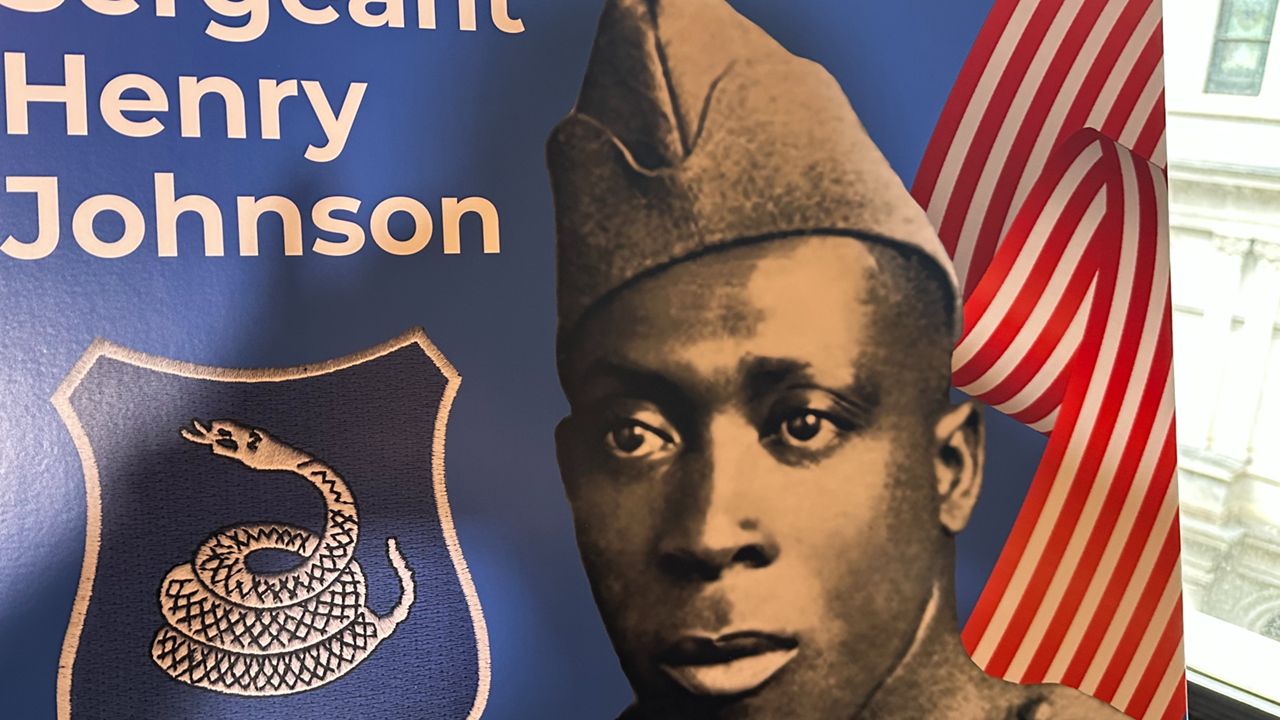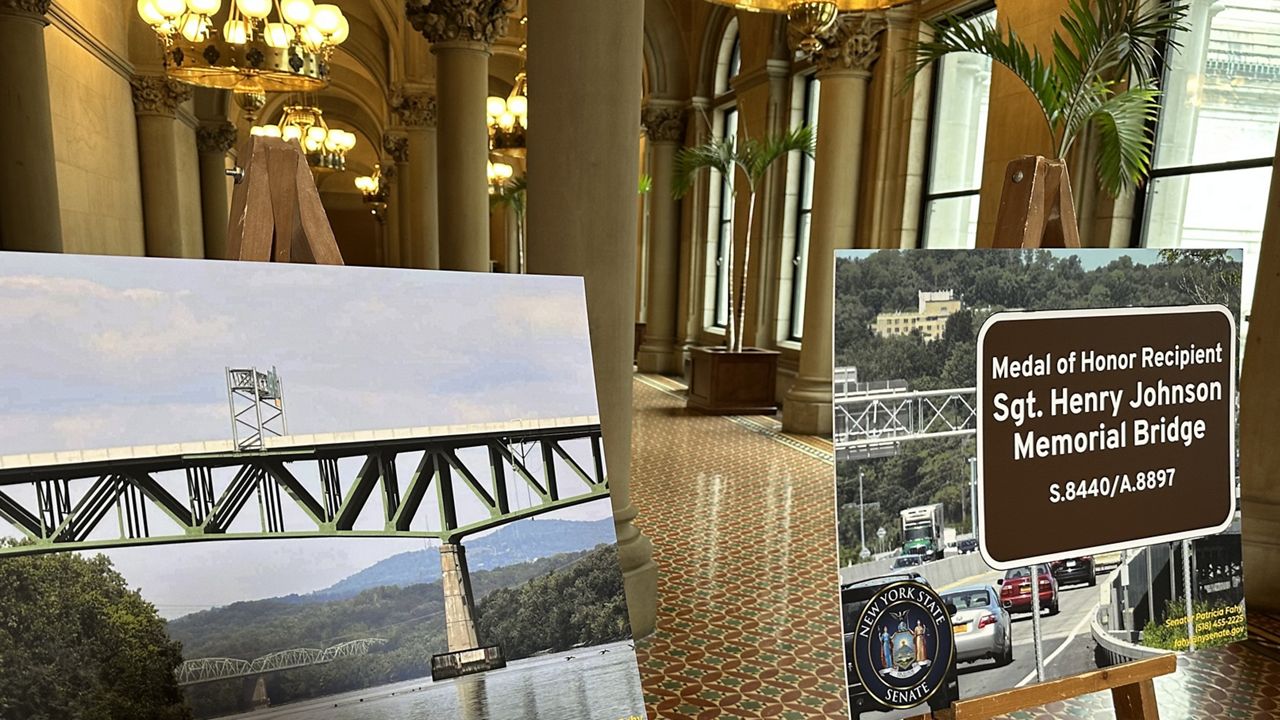Less than a week after the Trump administration stripped the late Sgt. Henry Johnson's name from the Army's top combat training center, Capital Region lawmakers announced a new way to honor the decorated World War I soldier from Albany's Arbor Hill.
Elected officials and military veterans met Tuesday in the state Capitol to discuss introduction of a bill that would dedicate the Patroon Island Bridge spanning Albany and Rensselaer counties after Johnson, a Black soldier who fought valiantly in France but died largely destitute in 1929.
State Senators Patricia Fahy and Jake Ashby and Assemblymembers John McDonald III and Gabriella Romero announced the legislation, which is supported by area mayors, county executives, Ronald Wilson, the president of the 369th Infantry Regiment and Jackie Jones, and Gulf War veteran and commander of North Albany American Legion Post 1610.
A charter school and boulevard in Albany already bears Henry Johnson's name. Now, the bridge on I-90 could.
"It should not go without mentioning that many in our region over generations have fought to recognize Sergeant Johnson’s bravery and heroism throughout his years of service," McDonald said Tuesday. “Former President Teddy Roosevelt, who as you know served here in New York state government, once called Sergeant Johnson one of the five bravest American soldiers in World War I, and despite that accolade and many others, the significance of his achievements were overlooked for a very long time.”
The 5-foot-4, 130-pound Johnson enlisted in the all-Black New York National Guard 369th Infantry Regiment 108 years ago and fought under French command in World War I due to segregation in the U.S. military.
During a 1918 battle in northeast France, the then 26-year-old suffered 21 wounds while singlehandedly fighting off at least a dozen Germans and coming to the rescue of a fellow soldier from capture.
"He killed one German with rifle fire, knocked one down with clubbed rifle, killed two with bolo, killed one with grenade, and, it is believed, wounded others," a National Guard report states.

While Johnson and other members of the 369th regiment were feted in a military parade in New York City in 1919, his time after the war was marked by battles for racial equality on the homefront. He died with lingering war wounds and his memory faded into virtual obscurity for decades.
In more recent years, area veterans and state leaders fought to recognize Johnson's accomplishments. Their efforts were rewarded in 2015, when President Barack Obama awarded Johnson the Medal of Honor, and again in 2023, when U.S. officials renamed Fort Polk in Louisiana Fort Johnson.
But in March of this year, the Defense Department removed an Army webpage detailing the naming of Fort Johnson as part of its review of "culturally focused Army websites" under President Donald Trump's executive order terminating diversity, equity and inclusion offices, positions and programs in the federal government.
The web page recently returned to the web, but last week, the Trump administration renamed Fort Johnson in Louisiana to Fort Polk, "mirroring its original Confederate-inspired name," as Albany officials said. The Army made the announcement with other name changes to U.S. military installations.
Fahy on Tuesday called it a "gut punch."


